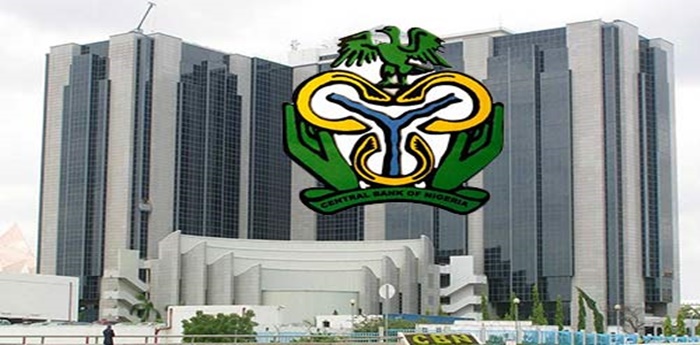The Central Bank of Nigeria (CBN) has instructed all banks to submit a comprehensive Capital Restoration Plan within 10 working days following the end of each quarter, starting on June 30, 2025, as part of its larger plan to stabilize the financial system and phase down pandemic-era rescue funding.
As the CBN emphasized that it wants to see cost-cutting measures, asset quality improvements, potential risk transfers, and longer-term business strategy adjustments, each bank’s capital restoration plan must outline how it aims to return to full regulatory compliance.
A circular signed by Dr. Olubukola Akinwunmi, Director of Banking Supervision, and posted on the CBN’s website yesterday, outlining the new guidelines, is part of the central bank’s continuous efforts to terminate the regulatory forbearance framework that was established during the COVID-19 crisis.
The CBN claims that the transitional framework is intended to help impacted banks return to complete prudential compliance while fostering macro-financial stability.
With effect from June 30, 2025, the circular declared that all regulatory forbearance and waivers related to Single Obligor Limits (SOL) from the COVID-19 era will be terminated. It stated that this is intended to restore risk sensitivity in the provisioning and classification of credit.
In order to facilitate asset quality cleanup, the central bank temporarily removed the rule that banks hold fully provisioned loans for a year prior to write-off, allowing impacted banks to reduce non-performing loans (NPLs) more quickly.
Furthermore, from June 30, 2025, to March 31, 2026, the regulatory restrictions on Additional Tier 1 (AT1) capital recognition in the CAR calculation have been temporarily removed. However, as the CBN explained, this action is “not a substitute” for the continuing recapitalization effort that was announced in March.
According to the statement: “The Central Bank of Nigeria (CBN) hereby communicates a coordinated set of transitional measures in pursuit of maintaining the stability of the financial system and guaranteeing a credible and orderly exit from the regulatory forbearance regime implemented during the COVID-19 crisis. These steps are intended to assist impacted banks in meeting prudential standards and ensuring a seamless transition away from short-term regulatory breaks.
All impacted banks must create and submit a thorough Capital Restoration Plan to the CBN by the tenth working day after the end of the quarter, with effect from June 30, 2025, in order to supplement the aforementioned measures and guarantee forward-looking capital planning.
The strategy should include the management’s suggested tactics for regaining complete regulatory compliance, such as efforts to optimize costs, reduce risk assets, transfer substantial risk, and make the required adjustments to the business model.
“Until capital and asset quality indicators are fully normalized, the plan must span the whole time frame.” In addition to being the foundation for ongoing supervisory monitoring and involvement during the transition, submitted plans will be subject to regulatory evaluation and approval.
Furthermore, it said in instructions published for prompt adoption and complete compliance: “All regulatory forbearance and waivers on Single Obligor Limits (SOL) relating to COVID-19 shall be ended as of June 30, 2025. The goal of this stage is to restore risk sensitivity in asset quality evaluations, provisioning, and credit classification.
All affected banks’ credit exposures must be in conformity with the most recent CBN Prudential Guidelines and any applicable laws.
“The requirement that fully provisioned loans be held for a year before being written off is temporarily waived for facilities related to forbearance in order to support asset quality cleanup.” Banks may proceed with write-offs to lower their ratios of non-performing loans (NPLs), as long as the internal governance standards are fulfilled.
Regarding limitations on the utilization of transitional reliefs, it was also mentioned that banks who receive these concessions must closely comply to the suspension of dividend payments in order to guarantee that retained earnings are preserved for capital strengthening and systemic risk mitigation.
Additionally, as stated in the CBN’s circular dated June 13, 2025, it recommended that investments in overseas subsidiaries and bonuses given to directors and senior management be halted.
Read Also: Nigeria Redirecting Fuel Subsidy Savings to Key Sectors — President Tinubu
Until capital levels and provisions are completely brought back into line with regulations, these limitations will remain in effect, the statement stated.
With effect from June 30, 2025, all banks must make the following quarterly statements in order to enhance supervisory supervision and encourage regulatory transparency: A thorough reconciliation of the impacted credit exposures and the provisioning status.
“CAR computations both with and without transitional remedies.” Classification migration information for loan facilities that have been impacted or restructured. Detailed information about AT1 instruments, including usage, terms of issuance, and associated circumstances. As of June 30, 2025, the CBN stated that the submission must be received by the Director of Banking Supervision no later than ten working days after the quarter’s conclusion.
As they work through the transition, the CBN advised all impacted institutions to continue to consult with its Banking Supervision Department. Additionally, it stated that it wants banks to fully support the measures, adhere to strict risk management guidelines, and contribute to enhancing the stability and confidence of the financial system.



